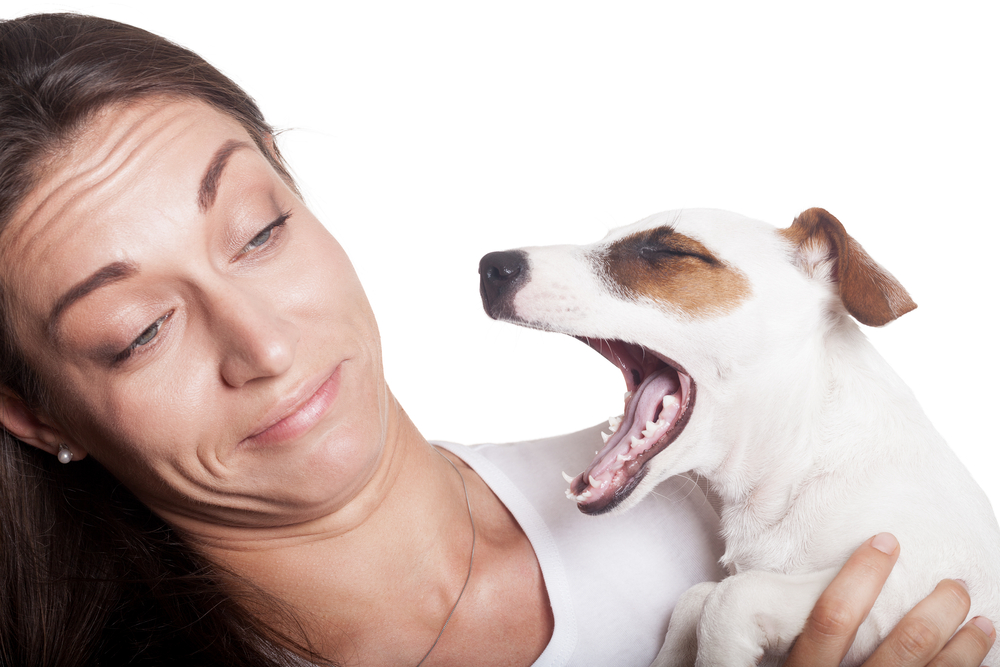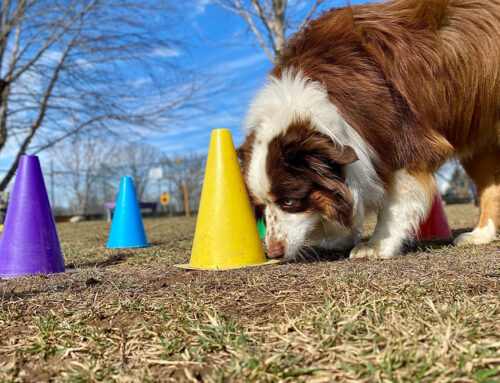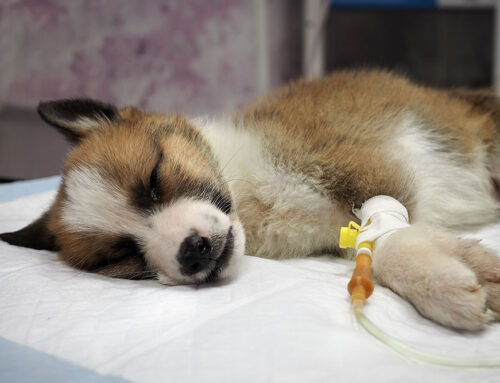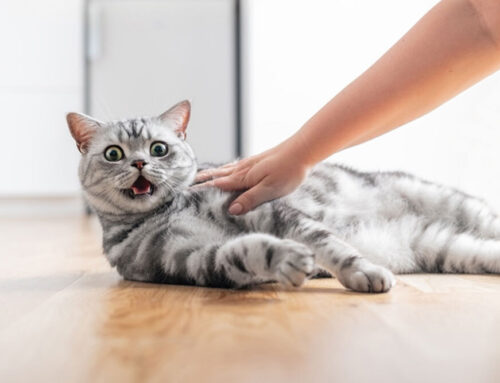When you notice a change in your pet, you may wonder if they need veterinary care. Your furry pal can’t tell you when they feel sick or are in pain, and determining when they need professional help can be difficult, so our Countryside Veterinary Hospital team wants to help ensure your pet gets the care they need when they need it. We explain signs that indicate your pet needs veterinary attention.
#1: Your pet’s activity level is decreased
You know your pet better than anyone, so you are the best person to evaluate their energy level. The term “lethargic” is often used to describe a pet with a decreased activity level, but sleeping all day or refusing to play aren’t the only indications they have a problem. For example, your normally high-energy pup who typically has an insatiable need to play fetch, likely has a problem if they want to stop after a few throws. Or, your usually sociable cat who starts spending most of their day under the bed needs a veterinary evaluation. Subtle activity level changes can indicate your pet feels unwell, and painful conditions, such as arthritis, can also lead to decreased energy.
#2: Your pet’s appetite changes
Many pets lose their appetite when they don’t feel well. Kidney disease, liver disease, bacterial or viral infections, and gastrointestinal (GI) disorders, for example, can lead to a decreased appetite, while pets who ingest a foreign body or toxin often stop eating.
An increased appetite can also signal a problem. Conditions that can lead to a pet’s excessive hunger include:
- Hyperthyroidism — Hyperthyroidism, which commonly affects middle-aged and older cats, is caused by a benign tumor on the thyroid gland that increases thyroxine production. This leads to a greatly increased metabolic rate and the cat develops a ravenous appetite.
- Diabetes — Diabetic pets don’t have sufficient insulin or their body doesn’t respond to insulin, which prevents their body from using glucose for energy, and they become excessively hungry.
- Parasites — Intestinal parasites can leach nutrients from your pet, causing increased hunger.
- Exocrine pancreatic insufficiency (EPI) — Pets affected by EPI can’t properly digest food, because their pancreas doesn’t make sufficient digestive enzymes. When they do not absorb the nutrients, they develop a ravenous appetite.
- Cushing’s disease — Cushing’s disease is most commonly seen in middle-aged and older dogs. A pituitary gland tumor causes increased hormone secretion, stimulating the adrenal gland to produce elevated cortisol levels, which in turn stimulate appetite.
#3: Your pet’s water intake changes
You must also monitor your pet’s water intake. Many pets stop drinking when they feel bad, especially if they feel nauseous. Decreased water intake can lead to dehydration, so this behavior change always requires a veterinary evaluation. Our Countryside Veterinary Hospital team can determine if your pet is drinking less because of a medical condition, and rectify their fluid losses with intravenous or subcutaneous fluid therapy.
Increased water intake is also a concern. Conditions such as diabetes, kidney disease, and Cushing’s disease can cause increased thirst and urination. Ensure your pet always has access to clean, fresh water, and carefully monitor their intake so you notice any changes.
#4: Your pet has unexplained weight loss
Some pets, especially cats, are excellent at hiding illness and they will eat, drink, and play normally despite their condition being advanced. Weight loss is sometimes the first indication that their health is compromised. Conditions such as cancer, liver disease, kidney disease, diabetes, hyperthyroidism, heart disease, and parasites can lead to unexplained weight loss. Regular wellness screenings are the best way to catch these conditions in their early stages before you see signs, but if you notice your pet is losing weight, they need a veterinary professional evaluation.
#5: Your pet is excessively itchy
Many pets are affected by allergies, such as flea-allergy dermatitis (FAD), food allergies, and atopy (i.e., environmental allergies), which can lead to hair loss, skin excoriations, and secondary skin infections. You may also notice your pet scratching at their ears or shaking their head. The causative problem must be diagnosed before your veterinarian can devise an appropriate management and treatment regimen, although diagnosing an allergic pet can be difficult. Steps may involve skin scrapings, food trials, and allergy testing before proper treatment can be instigated. If your pet can’t stop itching, contact our team, so we can help alleviate their discomfort.
#6: Your pet’s breath smells terrible

You may think that your pet’s bad breath is normal, but if their breath makes you wrinkle your nose, they likely have periodontal disease, which affects most pets to some degree by 3 years of age. Periodontal disease can lead to serious health complications, including painful gums, loose and missing teeth, tooth root abscesses, ocular problems, oro-nasal fistulas, and fractured jaw bones. In addition, oral bacteria can enter your pet’s bloodstream, damaging the kidneys, liver, and heart. So, if your pet’s breath smells bad, they may need a professional veterinary dental cleaning.
#7: Your pet has an eye abnormality
Issues affecting your pet’s eye can endanger their vision, and you should seek veterinary care if an eye is squinty, tearing, or appears abnormal in any way.
If your pet is exhibiting any signs that indicate they need veterinary care, or if you would like to schedule a wellness examination, contact our Countryside Veterinary Hospital team. We will ensure they receive the care and attention they need.








Leave A Comment